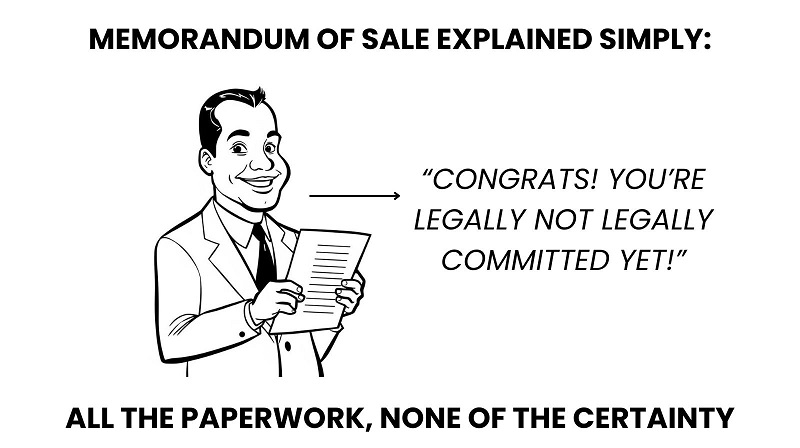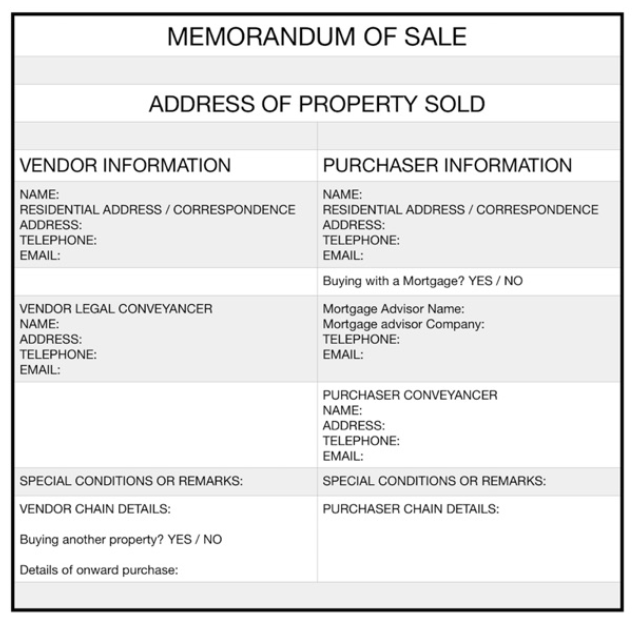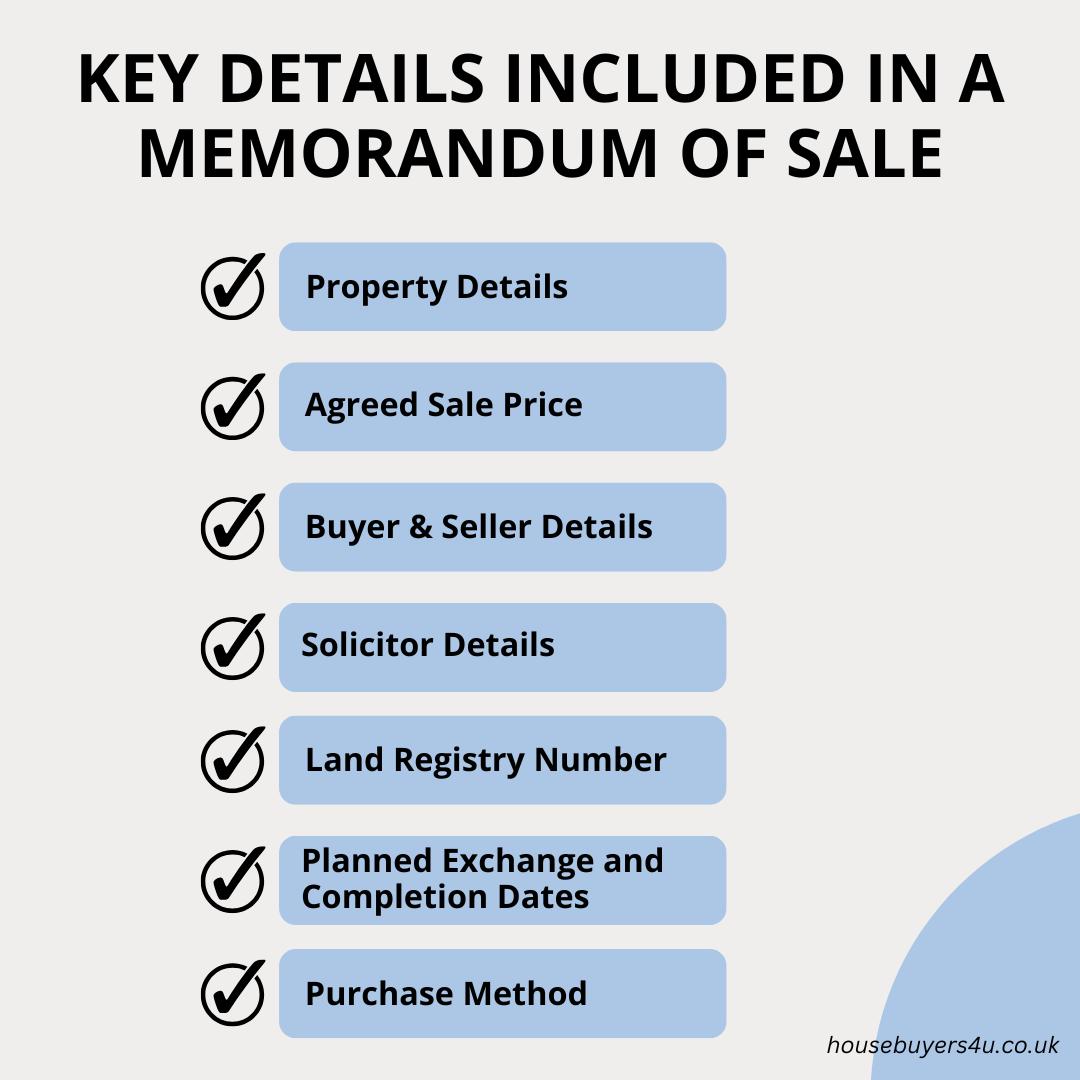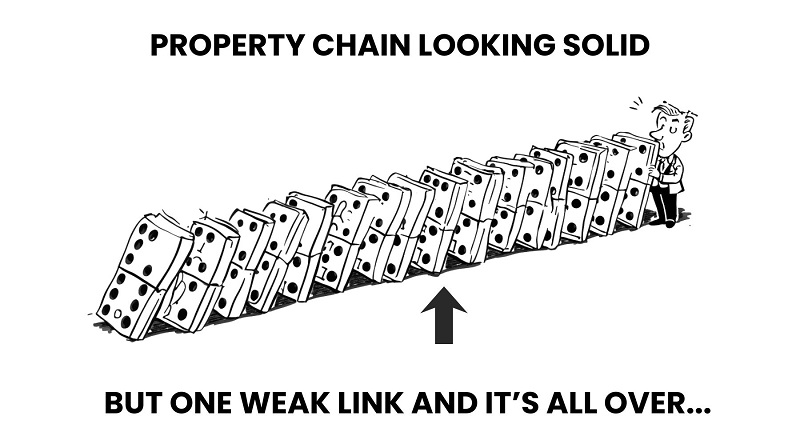Memorandum of Sale Explained (Don’t Sell Without This)

Key Takeaways:
- The memorandum of sale confirms the key details after an offer is accepted.
- It is not legally binding but helps kickstart the conveyancing process.
- Having all details ready in advance can speed up completion and reduce stress.
-
- What Is a Memorandum of Sale? (MoS)
- What Information Does a Memorandum of Sale Include?
- Who Issues the Memorandum of Sale?
- Is a Memorandum of Sale Legally Binding?
- How Long Does It Take to Issue a Memorandum of Sale?
- What Happens After a Memorandum of Sale Is Issued?
- What Can Delay the Memorandum of Sale Process?
- What’s the Difference Between a Notification of Sale and a Memorandum of Sale?
- Can You Pull Out After a Memorandum of Sale?
- Sell Your Property Fast Without the Hassle of Conveyancing
- Frequently Asked Questions
What Is a Memorandum of Sale? (MoS)
A memorandum of sale (Mos) is a written record of a property sale after an offer has been accepted. It includes the agreed price, buyer and seller details, and both solicitors’ information. While not legally binding, it officially starts the conveyancing process and ensures all parties are on the same page.
This is what a memorandum of sale template looks like in the UK:
What Information Does a Memorandum of Sale Include?
A memorandum of sale outlines the key details of the property transaction, ensuring that all parties involved have a clear record of the agreement. While the exact format may vary, it typically includes the following information:
| Detail | Why It Matters |
|---|---|
| Property address & tenure | Confirms the property’s identity and ownership type (freehold/leasehold). |
| Agreed sale price | Sets the confirmed purchase amount. |
| Buyer & seller details | Ensures all parties are correctly identified. |
| Solicitor details | Speeds up communication between legal teams. |
| Land Registry title number | Links the property to official records. |
| Planned exchange/completion dates | Helps everyone align timelines. |
| Purchase method (cash/mortgage) | Determines how funds will be transferred. |
Having this information in one document helps streamline the conveyancing process, reducing the risk of misunderstandings or delays.
Who Issues the Memorandum of Sale?
In most property transactions, the estate agent handling the sale is responsible for drafting and distributing the memorandum of sale. This is typically done within a few days of an offer being accepted to ensure the conveyancing process starts without delay.
Can a Homeowner or Seller Issue It Themselves?
Yes, but it depends on the type of sale. In private sales or auction transactions, the seller may issue the memorandum themselves. However, in most cases, the estate agent or auctioneer is responsible for preparing and sending it to the relevant parties, including the buyer, seller, and their solicitors.
What Happens After a Memorandum of Sale Is Issued?
From the outset, the company was honest and went through the process without pressurising me. After having tried the market and having a couple of sales fall through, I decided to take the cash offer. They did as they said and kept me informed throughout and completed within 2 weeks. Would defo recommend!
What Can Delay the Memorandum of Sale Process?
Delays in the memorandum of sale process often occur due to slow solicitor responses, mortgage approval hold-ups, or issues within the property chain. If a buyer’s mortgage isn’t finalised or a survey reveals unexpected problems, the process can stall. Solicitors waiting on missing documents or failing to respond promptly can also slow things down.
Expert Advice from Our Property Expert, Paul
"I’ve seen countless sales delayed simply because buyers or sellers hadn’t chosen their solicitor early enough. It’s one of the easiest problems to avoid. Once an offer is accepted, the agent can’t issue the memorandum until both legal teams are confirmed and that hold up can quickly turn into weeks of lost time. My advice is simple: line up your solicitor before you start viewing, so the sale moves forward the moment your offer’s agreed."





